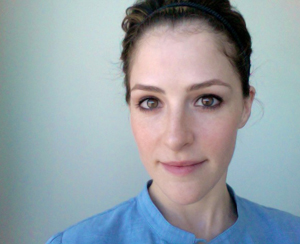Forget 'fast fashion'. How about apparel with an ethical pedigree?

The tragic collapse of the Rana Plaza building in Bangladesh this spring, which killed more than 1,100 garment workers, put a spotlight on the brutal backstory behind "fast fashion" -- or cheap, often poorly constructed apparel.
In the wake of the disaster, many brands linked to the factory signed onto an accord meant to make them accountable for unsafe labor conditions across their supply chains. Still, visions of the building debris and the huge number of fatalities will leave a lasting mark on the psyche of many shoppers.
Those are the consumers that Soraya Darabi and Maxine Bédat hope to attract to Zady, the online apparel and accessory store the pair are set to launch in late August.

"These are the people who shop at Whole Foods. They do yoga. They want to feel connected and conscious as they move throughout the world," Bédat says. "Our target customer is also global and stylish. We're bringing together conscious consumers -- they’re conscious of how the things they buy and consume are made, but also how it looks on them. They want a timeless style. These people don't do a complete overhaul of their wardrobe every season."
Thoughtful, well-edited lives
Darabi was that fast-fashion consumer at one time. "I liked having lots of clothing until I realized I wasn't wearing 90 percent of it. And then in wake of things like [the] Bangladesh [tragedy], it doesn't make you feel good to wear those things," she says.
Buying well is a way to "complete the circle" that starts with eating well and exercising, she says. "People want to feel good about what we put on our body every day. We're trying to live thoughtful, well-edited lives."
What that means to New York City-based Zady is that goods to be sold on the site are produced in small batches by "craftsman" and "artisans" who are very transparent about their suppliers and material sources.
Those small batches and transparency come with a price tag -- not exorbitant, but considerably more than togs one can buy at, say, H&M.
So what's to say Zady will successfully convert fast-fashion binge-buyers to consumers of higher quality goods with compelling, clear-conscious backstories?
"I think people would have asked that same question about food five years ago," answers Darabi.
Considering the growing popularity of farmer's markets, the focus on food's carbon footprint and sourcing sustainable seafood, she has a point.
Slow fashion with a pedigree
Storytelling is to be a major component of Zady.com, with photo-driven vignettes accompanying the products and describing where and how the designers got their start and what inspires them. Product pedigrees will also show the quality and care that went into each item.
Of course, Zady is not the first company to feature hand-crafted, artisan goods made through a transparent supply chain. In fact, the World Fair Trade Organization has been honing in on this for decades, and many American shoppers look for the Fair Trade USA logo on the chocolate or coffee they purchase. Darabi and Bédat say that while they support fair trade organizations, apparel is often not the focus of fair trade certifications and is therefore not something you'll see much of in Zady offerings.
Out of the gate, the site will carry goods from 35 designers, many of whom are based in and manufacture in the United States. The products are made for adults, but eventually the site may carry children's wares.
Zady is a natural progression for Darabi and Bédat, whose backgrounds are in media and international law/fashion, respectively. Darabi got her start bringing The New York Times into the age of social media as its manager of digital partnerships; she later went on to co-found Foodspotting, an app that helps users find their favorite, closest dishes. Bédat started The Bootstrap Project, a non-profit that promotes and sustains artisans from around the world and helps connect consumers with their expertly-made goods. Indeed, 5 percent of proceeds from Zady will be funneled into the Bootstrap Project and used to help train more artisans, she says.
Will Zady spark a new trend in fashion, focused on more on quality and less on quantity? Only if it can keep feeding consumers' often conflicting desires to be both classic and trendy.
Darabi isn't worried. "It's style first," she says. "But ethically minded style, because that's where the world is headed."
Photos: Zady/Marisa Haskell
This post was originally published on Smartplanet.com
